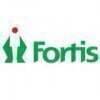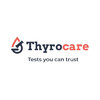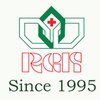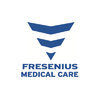Filter interviews by
Ruby General Hospital Interview Questions and Answers
Ruby General Hospital Interview Experiences
8 interviews found
I appeared for an interview in Apr 2025, where I was asked the following questions.
- Q1. How will you approach a case of brought death in emergency of the hospital after 6pm and there are no mortuary?
- Q2. Stages of Rigor mortis
- Q3. First organ to putrefaction after death
Interview Preparation Tips
I applied via Walk-in and was interviewed in Apr 2024. There was 1 interview round.
(6 Questions)
- Q1. Patient body Tempachear? Ans- A normal body temperature for a healthy adult is between 97.8°F (36.5°C) and 99°F (37.2°C)
- Ans. A normal body Tempachear for a healthy adults is between 97.8F(36.5 C)and 99F (37.2C)
- Q2. Patient normal blood pressure?
- Ans. Ans-Bp 120/80
- Q3. Patient normal blood sugar?
- Ans. Ans- A normal fasting blood sugar level is between 70 and 100 mg/dL (3.9 and 5.6 mmol/L
- Q4. Diarrhoea patient treatment ?
- Ans. Ans- Drink plenty of fluids, such as water, broths, juices, or oral rehydration solution (ORS)
- Q5. Sugar Falls medicine ?
- Ans.
1 -glucagon 2- sugar care
- Q6. Ans-hypoglycemia
- Ans.
It is a condition that occurs when the sugar levels (glucose) in the blood are too low. Diabetes treatment and other conditions can cause hypoglycemia. Hypoglycemia is a very dangerous condition.
Interview Preparation Tips
- Q1. Basic infection control questions
- Q2. Icra formet...what is icra
I applied via Naukri.com and was interviewed in Jan 2024. There was 1 interview round.
(1 Question)
- Q1. About the work experience
Interview Preparation Tips
I appeared for an interview before Jun 2024, where I was asked the following questions.
- Q1. Nothing much they asked
- Q2. Just introduce yourself, working experiance releted qus
I applied via Company Website and was interviewed in Oct 2022. There were 2 interview rounds.

(7 Questions)
- Q1. What is my last qualification job detail working time sailery
- Ans.
I don't have the available data
- Q2. Tell me 5 medicine company name
- Q3. 1.geno 2.mankind 3.lupin 4.shine 5.abbot
- Q4. What is telmikind tablet
- Q5. This is presure control medicine
- Q6. Ok good you are selected I'll be call you evning and you came next day after discussion sailery working time are u satisfied
- Q7. Yes i do sir thank u so much sir have a good day
Interview Preparation Tips
- Pharmacy med
I applied via Walk-in and was interviewed in Jul 2022. There were 2 interview rounds.
(1 Question)
- Q1. Powerplant question .hospital experience . steelplant experience
(1 Question)
- Q1. Electrician.any electrican
Interview Preparation Tips

(1 Question)
- Q1. Say something about yourself. What are you doing cureently ? Which institution ?
Interview Preparation Tips
Top trending discussions






Interview questions from similar companies

I applied via Referral and was interviewed in Sep 2020. There was 1 interview round.
Interview Questionnaire
1 Question
- Q1. Related to my role

Deputy Manager Interview Questions & Answers
Dr. Agarwal's Eye Hospitalposted on 21 May 2020
I applied via Company Website and was interviewed in Nov 2019. There were 4 interview rounds.
Interview Questionnaire
4 Questions
- Q1. SOP
- Q2. KPI
- Q3. P&L
- Q4. Numbers
Interview Preparation Tips
Ruby General Hospital Interview FAQs
Tell us how to improve this page.
Ruby General Hospital Interviews By Designations
- Ruby General Hospital HR Executive Interview Questions
- Ruby General Hospital Workman Interview Questions
- Ruby General Hospital Executive Interview Questions
- Ruby General Hospital General Nursing Midwifery Interview Questions
- Ruby General Hospital Assistant Medical Superintendent Interview Questions
- Ruby General Hospital Infection Control Nurse Interview Questions
- Ruby General Hospital Consultant Emergency Physician Interview Questions
- Ruby General Hospital Senior Electrician Interview Questions
- Show more
Interview Questions for Popular Designations
- Senior Executive Interview Questions
- Associate Interview Questions
- Team Lead Interview Questions
- Software Developer Interview Questions
- Senior Associate Interview Questions
- Business Analyst Interview Questions
- Sales Executive Interview Questions
- Associate Software Engineer Interview Questions
- Show more
Overall Interview Experience Rating
based on 14 interview experiences
Difficulty level
Duration
Interview Questions from Similar Companies
Ruby General Hospital Reviews and Ratings
based on 170 reviews
Rating in categories
|
Staff Nurse
45
salaries
| ₹1.2 L/yr - ₹3.4 L/yr |
|
Junior Executive
19
salaries
| ₹1 L/yr - ₹1.6 L/yr |
|
Nursing Staff
16
salaries
| ₹1.9 L/yr - ₹3 L/yr |
|
Public Relation Officer
15
salaries
| ₹1 L/yr - ₹2.6 L/yr |
|
Operations Executive
13
salaries
| ₹1.7 L/yr - ₹2.2 L/yr |

Apollo Hospitals

Fortis Healthcare

Dr Lal PathLabs

Thyrocare Technologies
- Home >
- Interviews >
- Ruby General Hospital Interview Questions











